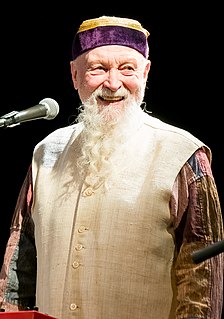A Quote by Vito Acconci
I came from the time of so-called New Criticism - the poem in itself, the writing in itself - but around that time I had come across a critic called Kenneth Burke, who wrote a book called A Rhetoric of Motives, and it seemed to talk about another way, and gradually I realized that other way was that the reader made a difference.
Related Quotes
Everything that from eternity has happened in heaven and earth, the life of God and all the deeds of time simply are the struggles for Spirit to know Itself, to find Itself, be for Itself, and finally unite itself to Itself; it is alienated and divided, but only so as to be able thus to find itself and return to Itself...As existing in an individual form, this liberation is called 'I'; as developed to its totality, it is free Spirit; as feeling, it is Love; and as enjoyment, it is Blessedness.
Long time ago, people would make the Bible, right? The guy said it, somebody wrote it down. And then if you wanted another copy of it, another human being wrote another one. It took a long, long time. Somebody created this thing called mimeograph paper and so you said, 'OK, we'll do it that way.' And so you could get three of them.
I had, in college, a professor called Walter Jackson Bate, and he taught a course called The Age of Johnson. It's about Samuel Johnson and his period, 18th-century British writing. So we all got to endure Samuel Johnson, and Boswell's 'Life of Johnson' is now my favorite book. I read it all the time I can; it's great for going to sleep.
I wrote a book called 'Doll Bones', which was another middle-grade book, and when I was writing it, I needed a place in the U.S. that made bone china. And there are only two places in the U.S. that make bone china. They made it by grinding down actual cow bones. It was a plot point. It was a creepy doll book.
Two records put me over the top with hip-hop. One of them was 'Planet Rock,' and the other had no lyrics - it was called 'Numbers,' from a group called Kraftwerk. Every kid in the 'hood in New York and New Jersey was popping, locking, and breaking to that record. It was the hottest track on the street at the time.







































